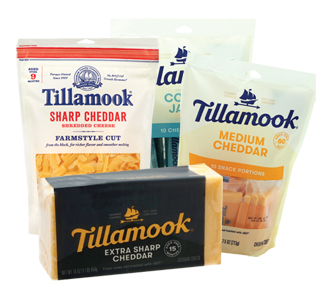Home Product Overview Cheese

Tillamook is a Pacific Northwest cheese powerhouse with a century-long legacy of excellence. Committed to crafting exceptional cheeses from the finest local Oregon milk, Tillamook's partnership reflects our dedication to sourcing the finest ingredients for our community. Available year-round in blocks, slices, shredded, or snack options.
View nutritional information and pricing at our product detail page.